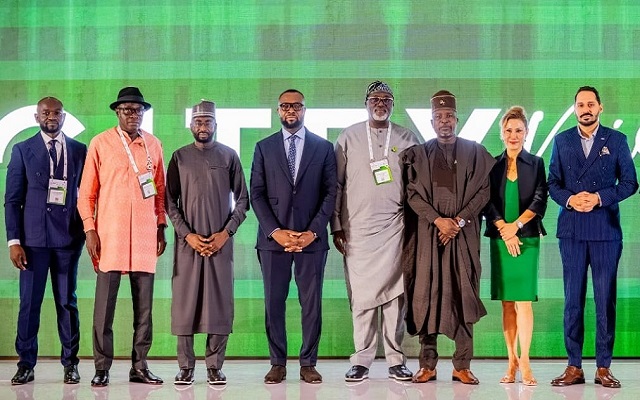Nigeria’s vast potential as a digital powerhouse took centre stage at GITEX Nigeria 2025 in Abuja, where global and local leaders urged Africa’s largest economy to seize the opportunities of artificial intelligence (AI) or risk being left behind.
Executive Vice President of the Dubai World Trade Centre (DWTC), Trixie LohMirmand, underscored Nigeria’s unique position as a frontier of digital opportunity, given its fast-growing population projected to rise from 230 million today to 400 million by 2050.
“Nigeria is not defined by the headlines or its current challenges, but by the scale of opportunities of tomorrow. Those who stay the course are the future of Africa,” LohMirmand said.
She stressed that GITEX would continue to provide a platform for start-ups, SMEs and innovators to access global partnerships and compete internationally, urging Nigeria to “claim its seat at the global digital table.”
Her call was echoed by the Honourable Minister of Communications, Innovation and Digital Economy, Dr Bosun Tijani, who insisted that Africa must fast-track the adoption of AI to boost productivity, competitiveness and job creation.
“AI will widen the productivity gap between nations. Countries that are already ahead will move even faster, while those still catching up will find it even more difficult,” Tijani warned.
Drawing from recent visits to Brazil and South Africa, he cited AI-driven precision agriculture as an example of what Africa is missing out on, saying that farmers there use soil sensors, predictive analytics, drones and satellite imaging to cut costs by up to 95 per cent and achieve maize yields of 10–12 tonnes per hectare. In contrast, Nigerian farmers still average just 2.5 tonnes.
To guide Africa’s AI journey, Tijani outlined four critical priorities: developing national AI strategies while pursuing shared standards; equipping Africa’s young population with future-ready skills through programmes such as the “3 Million Technical Talent” initiative; creating relevant local datasets in agriculture, health and education; and investing in affordable connectivity and clean energy as the foundation for AI-driven growth.
“If we cannot close this gap, Africa risks becoming a continent that imports food, imports services and imports innovation. That is not the Africa we want,” he added, urging stakeholders to commit to actionable plans rather than endless discussions.
Director-General of the National Information Technology Development Agency (NITDA), Kashifu Inuwa, reinforced the urgency of collaboration in building shared AI infrastructure, and warned that while Africa was marginalised in past industrial revolutions, the rise of AI offers the continent a rare chance to lead.
“Any country left behind in this AI revolution risks catastrophe, while those who lead will shape the world,” Inuwa said.
Citing research by Epoch AI, he noted that automation could boost global economic growth by 20 per cent, potentially doubling the world economy within five years.
To ensure Africa benefits, he outlined four areas of focus: human capital development, infrastructure expansion, national AI strategies and policies, and an enabling ecosystem for start-ups and research. He further stressed the importance of building local large language models (LLMs) to represent African cultures and values in global AI systems.
As the summit wrapped up, the consensus was clear: Africa, led by Nigeria, cannot afford to lag in adopting AI. Instead, it must position itself as a producer of innovation, not just a consumer, if it is to thrive in the Fourth Industrial Revolution.

